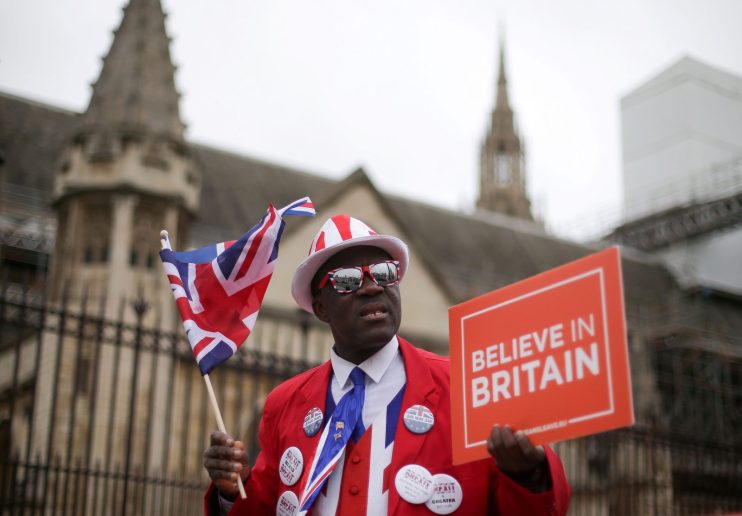Brexit sovereignty is on the horizon, if the government would only seize it

With just 45 days to go until the Brexit transition period expires, negotiations between Brussels and London are heading into a final frenzy.
At the same time, the political battle is heating up. Last week, the government’s proposed Internal Market Bill, designed to correct the most pernicious aspects of the Brexit withdrawal agreement signed last autumn, suffered a not unexpected but still sizeable defeat in the House of Lords.
Interestingly, the government will now delay any final vote in the Commons until the end of the month, at the earliest (more on that later). In the meantime, the behaviour of the upper chamber — focusing specifically on clauses of the Bill which could lead to breaches of international law — has caused outrage.
As Baroness Fox of Buckley warned, the Lords row “is seen as a last-ditch battle in the Brexit wars” and “another attempt at using legalese to delay the realisation of finally being free of the EU’s jurisdiction”.
The Lords’ opposition to the purported breaking of international law seems odd given the innumerable occasions the EU has itself broken international law. Indeed, the EU believes its own “domestic” law to have priority over treaty law. (For the record, Germany has historically been the biggest breaker of EU rules.)
Far from trampling over international conventions, the Internal Market Bill is an attempt (albeit late in the day) by the British government to prevent the abuse of an agreement which threatens the UK’s territorial integrity.
The EU has threatened — and is still threatening — to prevent the transit of foods from the British mainland to Northern Ireland on the basis that they may not meet EU standards. A spurious objective, given that the whole of the UK already meets those same standards due to us having been in the EU for 45 years.
It goes without saying that breaking international law is not to be done lightly (if indeed that is what is happening). But nothing should override the democratic will of the British people, and it is to that — and to that alone — that the Prime Minister should have first loyalty. If this is what it takes to correct what would be a historic mistake, so be it.
To go back to last autumn, we should be clear that the government should never have agreed to the withdrawal agreement and Northern Ireland Protocol (NIP) in the first place. The Prime Minister then had a golden opportunity to amend or ditch the agreement between his landslide election victory last December and when the agreement became law the following January. He did not take it.
The agreement the government signed up to effectively locks Northern Ireland into the EU’s customs union. Northern Ireland must continue to adopt EU state aid laws, as well as EU rules in respect of excise duty and VAT. This would be the case even if the UK proves successful in agreeing a trade deal that removes level playing field rules, which the EU is arguing should apply not just to Northern Irish businesses but to those in Great Britain too.
The withdrawal agreement as it stands creates an incentive in favour of the EU by encouraging a close trading and constitutional arrangement, when what the UK requires — post-Covid more than ever — is the freedom to diverge and exploit competitive advantage.
Addressing this major issue was the purpose of the Internal Market Bill, with all its controversies. And it is what the House of Lords tried to block.
Of course, were a deal to be agreed at the eleventh hour, the most controversial clauses in the Internal Market Bill would no longer be relevant, as they apply only in the event of a no-deal. In delaying the Commons vote until the end of the month, many Brexiteers fear the government is not actually serious about its intentions to correct the withdrawal agreement’s faults, but is only holding out for a compromise deal with Brussels.
Here, we should pause and consider whether this is really the best course, especially in the aftermath of a pandemic. There have been seismic shifts in the way that we live and work over the past nine months, with businesses and indeed whole industries forced to adapt overnight. The UK would be better positioned to support businesses through these changes once free from EU jurisdiction.
As for the risks of a no-deal Brexit when it comes to trade deals, these have been grossly exaggerated too. New evidence published last week reveals that two thirds of the EU’s international trade is not conducted using trade deals, suggesting that the myopic focus on this issue alone is misguided. At the same time, the UK has already proved adept at not only rolling over existing agreements made between the EU and other countries, but in signing new ones — with Japan as the first success.
Ultimately, a sovereign nation is not one which is bound to rules imposed on it by foreign jurisdictions, with no power to renegotiate. We cheer the government’s attempt to correct the most pernicious aspects of the withdrawal agreement. Far better, though, to give up trying to negotiate a deal with a partner that clearly does not want to cooperate, repudiate the agreement, and enable the UK to be free from it entirely.
Main image credit: Getty